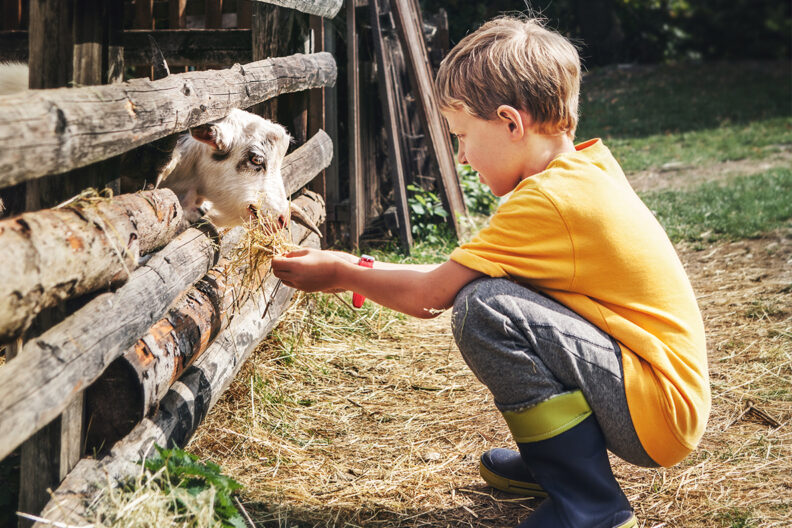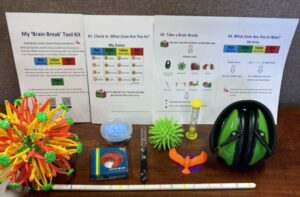
College of Agricultural, Human, and Natural Resource Sciences
Kits with supplies like stress balls, fidgets, and noise cancelling headphones will be sent to 600 young people in rural Washington to use when they are stressed during remote learning.
An anonymous donor gifted $50,000 to WSU's College of Agricultural, Human, and Natural Resource Sciences, which provided 300 of the kits for rural youth. The WSU team leading the project then applied for and received matching funds from All in Washington through the Innovia Foundation, and were able to double the amount of kits to 600.
"The pandemic has really turned education upside down," said Natalie Turner-Depue, interim director for WSU Extension's Child and Family Research Unit (CAFRU) and the CLEAR Trauma Center, who is currently spearheading the project. "Giving kits to 600 families is a really significant impact, but we are not even scratching the surface of the need."
A survey commissioned by the National 4-H Council found that 70% of youth in the U.S. are struggling with their mental health in the wake of COVID-19.
When Washington state shut down due to the COVID pandemic in March of 2020, educators had to pivot to online instruction.
"Teachers were feeling incredible amounts of stress in terms of having to learn a new platform immediately. Many teachers we talked to felt like they were providing the academic as well as the social emotional skills for students who are now learning virtually," Turner-Depue said.
Rural areas in Washington often lack access to internet services, childcare, and medical services. The goal of this work is to support students in rural areas who have been isolated from their normal support system.
"Because they're not getting the opportunities necessarily to learn the social and emotional skills at school, there is a risk they could lose ground when they return," said Turner-Depue, a licensed mental health counselor.

Emotional regulation is the ability to have control of our emotions, including skills like mindfulness, refocusing, or rethinking a challenging situation.
"When we are overwhelmed by stress, our brains focus on survival rather than learning. Because stressed brains cannot learn, it is critical to teach and model skills so students can learn to manage their stress in healthy ways and stay learning-ready," she said.
Turner-Depue said the team sent out surveys statewide to find out how many families wanted toolkits. Approximately 1,500 families asked for kits, she said.
Along with the kits, Trauma Consultants from CAFRU trained 4-H county Extension staff throughout Washington state on how stress and trauma disrupt learning, and how to promote emotion regulation at home.
"These kits were developed so our youth can use the items to help self-regulate their emotions when they're feeling anxious, stressed, depressed, or scared," said Nancy Deringer, 4-H state program leader for Washington.
"It's important for adults to listen and acknowledge the feelings of the youth in their care and help them find ways to cope during times of emotional stress and uncertainty," Deringer continued. "We want them to know we care about their mental health."
Turner-Depue said the training was well received by county Extension staff, and another round of training is planned for later this spring.
"Right now, kids and teens are looking to adults to provide them guidance and direction, and that was completely ripped away during the pandemic," she said.
Turner-Depue said the next part of the training will focus on how to support education of parents and caregivers in those rural homes so they can continue to support their children when the staff finish their program.
"Students can take the kits with them to school as we transition from at home learning back to in-classroom learning," she said. "We want to make sure students have the emotional regulation skills to succeed, wherever they are."






